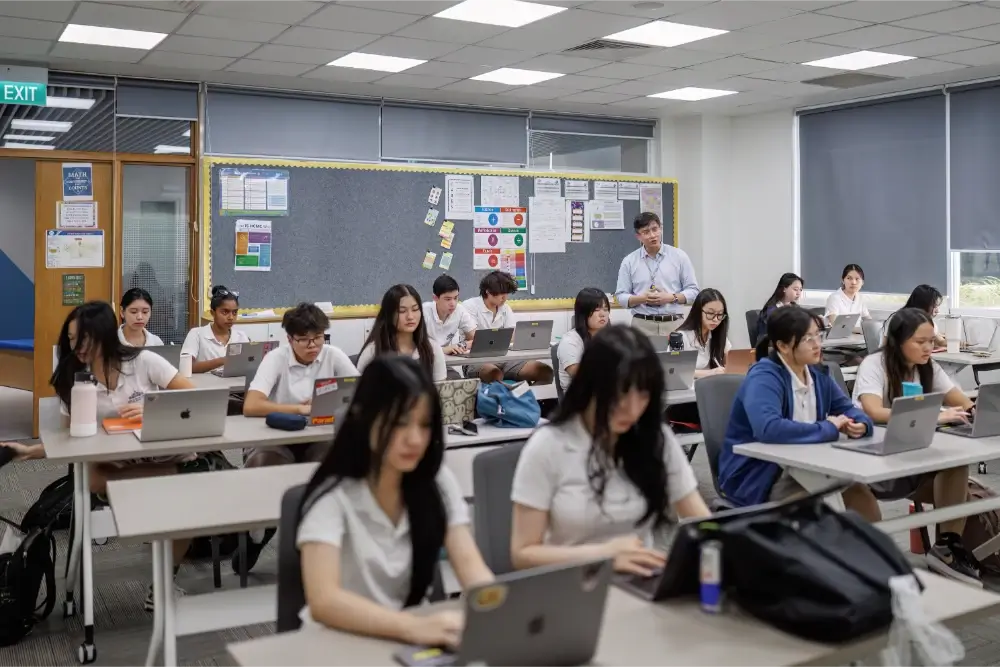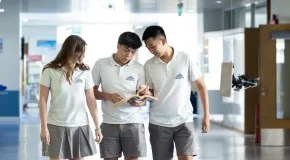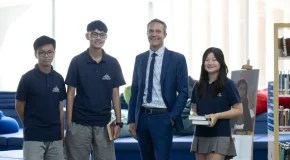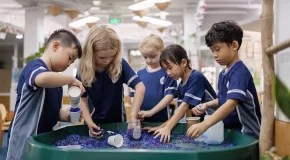Empowering Every Learner: Student Voice and Choice for All through Universal Design for Learning at ISHCMC
Inclusive education at ISHCMC is an appreciation for the diversity of all of our learners. With students, families, and staff from over 60 nationalities, it is essential that we establish a common language and understanding of how learning is conducted and expressed both in and out of the classroom. We recognize that each learner brings unique strengths, needs, and perspectives. That’s why we embrace Universal Design for Learning (UDL) as a shared language and framework across the entire school. From inquiry-led learning in the classroom to proactive support from our Student Support Services team, ISHCMC provides every student with the tools, flexibility, and encouragement to take ownership of their learning. This approach ensures that all students, regardless of background, learning style, or ability, feel included and are given the opportunity to thrive.
UDL: A Common Language for All Learners
Universal Design for Learning (UDL) is the common language that is used so that all of our students have equal opportunities to learn. UDL is a learning framework inspired by cognitive neuroscience that focuses on creating learning environments that welcome and address the needs of our diverse learners.
Staff at ISHCMC utilize the principles of UDL to design learning environments where students have multiple means of voicing their understanding, choosing how to express their learning, and challenging themselves through holistic enrichment opportunities. Our students are challenged each day to engage proactively in their learning. UDL addresses the diversity of learning needs through the three main categories of Engagement, Representation, and Action and Expression.
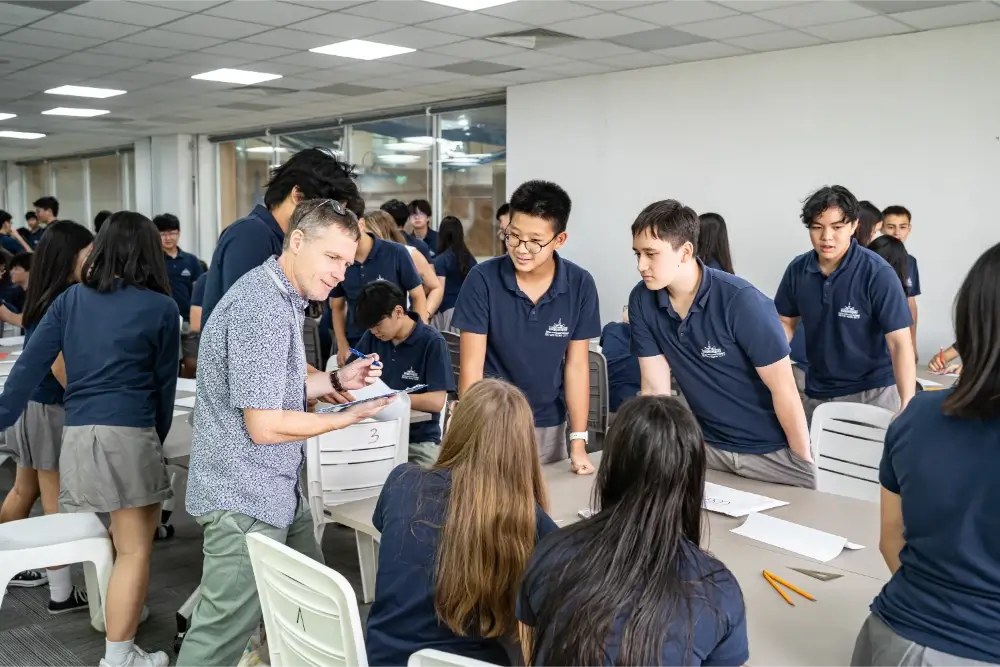 Engagement: The Why of Learning
Engagement: The Why of Learning
Engagement is the why of learning. Teachers implement explicit classroom strategies to motivate students to engage in their education. Students readily engage with their learning through skill-building and sharing their knowledge across various platforms. Students can create oral presentations, participate in group work, and utilize media such as podcasts and videos to express themselves. Student agency and flexibility are enhanced when they are able to have a choice in the medium used to share their learning.
Representation: The What of Learning
Representation is the what of learning. Everyone learns in a different way, as the way our brains synthesize information varies. To support diverse learning styles, teachers provide multiple ways for our students to access content material and offer opportunities for hands-on learning. Teachers can offer content through visual anchor charts in the classroom, written instructions, graphic organizers to support students systematically learning to manage their tasks, and through audiobooks or videos.
Action and Expression: The How of Learning
Action and Expression are the how of learning. Teachers provide students with more than one way to interact with learning materials so that they are able to use their learning style to enhance understanding. To support how our students learn, our Student Support Services team offers proactive collaboration, training, and interventions to promote belonging in our community.
Comprehensive Student Support Services at ISHCMC
The Student Support Services team at ISHCMC is comprised of a challenge and enrichment coordinator, future pathways counselors, social emotional counselors, learning support teachers, an occupational therapist, and a speech and language therapist across primary and secondary. The team’s unique training and professional background allow all of our community to benefit from their expertise.
Our team provides universal support across all of school life, partnering with a variety of stakeholders.
Specialist Roles That Enhance Learning
At ISHCMC, each specialist plays a key role in creating an inclusive, student-centered learning environment by supporting individual needs and enriching the school experience across all areas of development.
- Challenge and Enrichment Coordinator: Ensures enrichment is across all domains of school life by advocating for agency and identification of how life at school can be enriched.
- Occupational Therapist: Works with students, teachers, school leaders, and parents in supporting authentic participation of students in all school-related activities. The focus is on addressing the barriers to authentic engagement while enhancing student strengths. This might look like co-creating and problem-solving support for regulation, motor, sensory, and executive functioning needs.
- Speech and Language Therapist: Offers direct support to students for articulation, voice, fluency, social communication, expressive language, and receptive language skill-building. They also guide teachers to learn about concepts such as narrative language, multilingual language development, and even gestalt language processing, so all language needs are supported in the classroom.
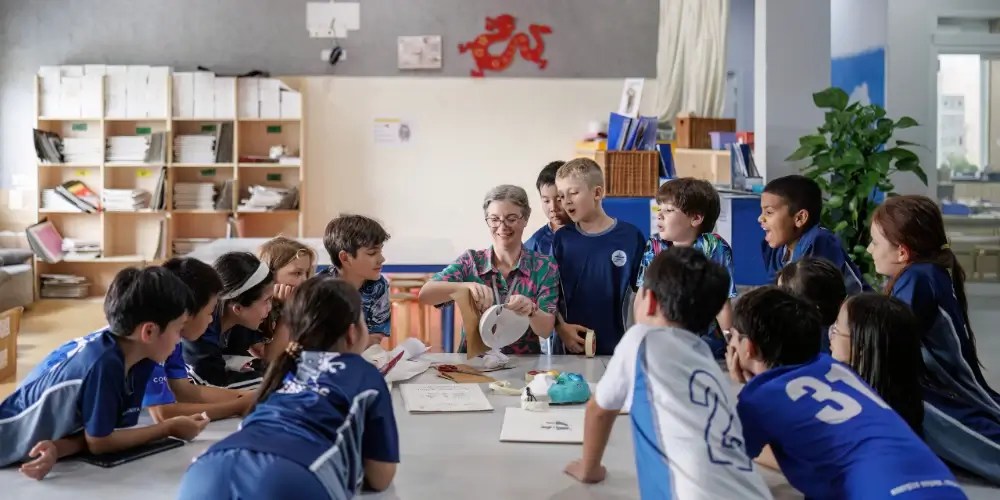
Counseling, Wellbeing, and Learning Access
Our counseling team meets with individual students and families and offers consultation to our staff to ensure mental health and well-being are a key focus for our community. Students learn best in a safe and secure environment. Our counselors work closely with stakeholders so students’ needs are met.
Our learning support team’s key focus is on how our students access the curriculum. Through staff trainings on UDL strategies in the classroom or individual support sessions, learning styles are identified and supported efficiently.
Empowering Every Student Through Inclusive Learning
Through comprehensive support and a clear vision for identifying the individual learning needs of our students, ISHCMC students develop a strong voice in their educational journey. They co-create with their teachers on how they interact with and express their learning.

